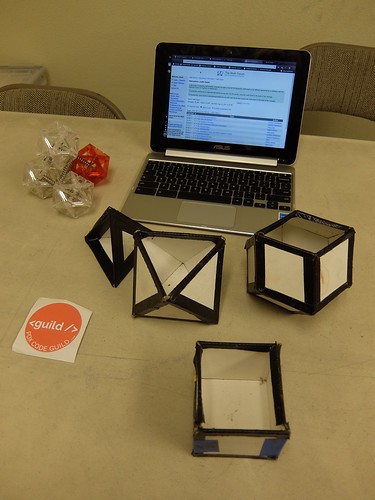Thursday, August 24, 2017
Rush Hour
I do my best to avoid being part of the problem, withdrawing my car from congestion, taking more time at the watering holes. I don't always succeed. Yesterday I was hoping to make a 6 PM meetup back in my neighborhood.
So I snapped on the car radio, like many commuting North Americans, and tuned into NPR for some stories about how the CIA is still looking for a mission in Afghanistan, and to succeed will need some level of military engagement. Pakistan is likewise in the cross-hairs. Oh, and Egypt. Syria is pretty much out of the news, as is Gaza.
All this traces back to the 911 debacle, around which so many questions still swirl, and used as a major excuse to mislead. Iraq had made huge concessions in hopes of avoiding an invasion, but the PR people knew they'd need a scapegoat if anything really bad happened. Invading Iraq would move from back burner to front, because Afghanistan didn't have anything like Saddam's palaces. Libya got the same treatment, even after concessions. Europe got the refugees.
We also heard about The Wall again. A nation of immigrants can't bring itself to really self-govern. Reaching for too much territory too quickly, was that it? Psychologically, the Civil and Spanish-American wars are still driving so much of the "policy" albeit unconsciously.
I did manage to meet up with Derek (Deke the Geek, big on Twitter) and Trevor (one of the top Bucky Fuller archivists, world class), at the intersection of Hawthorne and SE 37th, in front of Starbucks, totally unplanned, but missed meeting with the folks I'd actually scheduled to meet with, on their way to Burning Man this weekend.
Today I'm staying out of the melee, having some happy hour beers and salad while I wait for rush hour commuters to get home. I won't be listening to any news programs. Bankrupt policies are of fading interest.
So I snapped on the car radio, like many commuting North Americans, and tuned into NPR for some stories about how the CIA is still looking for a mission in Afghanistan, and to succeed will need some level of military engagement. Pakistan is likewise in the cross-hairs. Oh, and Egypt. Syria is pretty much out of the news, as is Gaza.
All this traces back to the 911 debacle, around which so many questions still swirl, and used as a major excuse to mislead. Iraq had made huge concessions in hopes of avoiding an invasion, but the PR people knew they'd need a scapegoat if anything really bad happened. Invading Iraq would move from back burner to front, because Afghanistan didn't have anything like Saddam's palaces. Libya got the same treatment, even after concessions. Europe got the refugees.
We also heard about The Wall again. A nation of immigrants can't bring itself to really self-govern. Reaching for too much territory too quickly, was that it? Psychologically, the Civil and Spanish-American wars are still driving so much of the "policy" albeit unconsciously.
I did manage to meet up with Derek (Deke the Geek, big on Twitter) and Trevor (one of the top Bucky Fuller archivists, world class), at the intersection of Hawthorne and SE 37th, in front of Starbucks, totally unplanned, but missed meeting with the folks I'd actually scheduled to meet with, on their way to Burning Man this weekend.
Today I'm staying out of the melee, having some happy hour beers and salad while I wait for rush hour commuters to get home. I won't be listening to any news programs. Bankrupt policies are of fading interest.
Wednesday, August 23, 2017
The Matrix
Given C6XTY, Sam Lanahan's invention, consists of six identical base units, fitting flush, edge to edge, tongue in groove, to build a soccer ball, I'm realizing a spherical cube, a hexahedron is part of its core nature.
This intrinsic "qyoobosity" relates to the mutually orthogonal placement of three phi-rectangles X, Y, Z within the icosahedron, which served as the compression unit in previous iterations of Flextegrity.
With C6XTY, this icosahedron is replaced with a soccer ball, or hexapent, with which it has many properties in common.
The connector pieces, in this case ABS plastic or polypropylene, grab the spherical cube by its six faces, locking into them with form-fitting hexagons and special screws. The base locks, each keeping three faces together, appear at the eight corners of our spherical cube.
A C6XTY "soccer ball" fully embedded in the matrix, is at the center of an XYZ economy and IVM economy at the same time.
By "IVM economy" I mean the ball centers are at the centers of a CCP (cubic close packing) or FCC (face centered cubic) lattice. IVM = isotropic vector matrix, what R. Buckminster Fuller named this well-known lattice.
Yet the tension arms run in a mutually perpendicular fashion throughout, not between centers as in Bell's "kite" designs, but in the space in between.
This intrinsic "qyoobosity" relates to the mutually orthogonal placement of three phi-rectangles X, Y, Z within the icosahedron, which served as the compression unit in previous iterations of Flextegrity.
With C6XTY, this icosahedron is replaced with a soccer ball, or hexapent, with which it has many properties in common.
The connector pieces, in this case ABS plastic or polypropylene, grab the spherical cube by its six faces, locking into them with form-fitting hexagons and special screws. The base locks, each keeping three faces together, appear at the eight corners of our spherical cube.
A C6XTY "soccer ball" fully embedded in the matrix, is at the center of an XYZ economy and IVM economy at the same time.
By "IVM economy" I mean the ball centers are at the centers of a CCP (cubic close packing) or FCC (face centered cubic) lattice. IVM = isotropic vector matrix, what R. Buckminster Fuller named this well-known lattice.
Yet the tension arms run in a mutually perpendicular fashion throughout, not between centers as in Bell's "kite" designs, but in the space in between.
Tuesday, August 22, 2017
Another Haystack Needle
[ originally posted to math-teach @ Math Forum ]
True enough I'm the token "Fuller disciple" here on math-teach.
Given recent history, it's not surprising to find one of his "cult members" here. I use scare quotes cuz Fuller did his level best to avoid "cult leader" status, though he attracted his share of devotees, collaborators, co-conspirators (Marshall McLuhan, Arnold Toynbee, Hugh Kenner...).
I'm not apologetic for keeping his "concentric hierarchy" alive though, his Kepleresque embedding of polyhedrons one inside the other (Russian Dolls), with the tetrahedron his volumetric unit. A & B modules. T & E, S modules. Cubocta:Icosa :: S:E. https://repl.it/IqOL Lots of low-hanging fruit in this area, as David Koski will attest.
Sharing such content in K-14 is not that off the wall given how super-accessible it is, visually as well as mathematically. I'm used to other teachers sounding defensive, giving lip service to how math is a big tent... but maybe not that big. I'm also a speaker at art schools and maker spaces (more 3D printing ahead).
If Fuller's writing were incomprehensible, I doubt Nature would have singled out Operating Manual for Spaceship Earth as one of the more influential tomes of the 1970s.[1]
His writing is difficult, but so is Heidegger's. My background as a philosophy reader (Wittgenstein etc.) leads me to plow into esoterica such as Synergetics. Applewhite liked how I brought Wittgenstein's "meaning through use" dogma into juxtaposition with Fuller's alt-meanings. The Synergetics vocab was deliberately remote (see Synergetics 250.30).
When I share the whole number volumes table with kids, I'm quick to remind them they won't find any of this in the textbooks. That tends to add to their curiosity.
Remember, the Jitterbug Transformation is alluded to in the logo of the IMU (International Mathematical Union), and the old NCTM logo was an octet-truss. The memes are still out there, albeit in a somewhat X-Files blend.[2]
Kirby
[1] 26 November, 2015 pg.
https://flic.kr/p/BeVqrV
[2] http://controlroom.blogspot.com/2015/02/a-tale-of-two-logos.html
True enough I'm the token "Fuller disciple" here on math-teach.
Given recent history, it's not surprising to find one of his "cult members" here. I use scare quotes cuz Fuller did his level best to avoid "cult leader" status, though he attracted his share of devotees, collaborators, co-conspirators (Marshall McLuhan, Arnold Toynbee, Hugh Kenner...).
I'm not apologetic for keeping his "concentric hierarchy" alive though, his Kepleresque embedding of polyhedrons one inside the other (Russian Dolls), with the tetrahedron his volumetric unit. A & B modules. T & E, S modules. Cubocta:Icosa :: S:E. https://repl.it/IqOL Lots of low-hanging fruit in this area, as David Koski will attest.
Sharing such content in K-14 is not that off the wall given how super-accessible it is, visually as well as mathematically. I'm used to other teachers sounding defensive, giving lip service to how math is a big tent... but maybe not that big. I'm also a speaker at art schools and maker spaces (more 3D printing ahead).
If Fuller's writing were incomprehensible, I doubt Nature would have singled out Operating Manual for Spaceship Earth as one of the more influential tomes of the 1970s.[1]
His writing is difficult, but so is Heidegger's. My background as a philosophy reader (Wittgenstein etc.) leads me to plow into esoterica such as Synergetics. Applewhite liked how I brought Wittgenstein's "meaning through use" dogma into juxtaposition with Fuller's alt-meanings. The Synergetics vocab was deliberately remote (see Synergetics 250.30).
When I share the whole number volumes table with kids, I'm quick to remind them they won't find any of this in the textbooks. That tends to add to their curiosity.
Remember, the Jitterbug Transformation is alluded to in the logo of the IMU (International Mathematical Union), and the old NCTM logo was an octet-truss. The memes are still out there, albeit in a somewhat X-Files blend.[2]
Kirby
[1] 26 November, 2015 pg.
https://flic.kr/p/BeVqrV
[2] http://controlroom.blogspot.com/2015/02/a-tale-of-two-logos.html
Sunday, August 20, 2017
Didactic Cartoons
For further reading:
Lesson Plan (alternative models of multiplying to get area) -- Math Forum, August 2017
Tuesday, August 15, 2017
Data Stores
Wanna do CRUD against a Google sheet using Python? Sounds dirty? Create, Retrieve, Update and Delete are the core actions one takes against a recording medium, with the devil, as always, in the details. Do we use SQL (Structured Query Language)? Maybe so.
In the above video, however, we're putting a resource in the cloud, a tabular data set, and letting a single user consult it, or mess it up, using Python. When a dataset is read-only, or, as we often say, immutable, the chances for panic attack are a lot less. But what if disparate users write and read at the same time? Are transactions atomic? That's where we talk about ACID, in addition to CRUD.
Precisely because spreadsheets are such a useful tool, and easily comprehended, there's a temptation to go overboard and overuse them. The key skill, then, is to recognize when a spreadsheet might be sufficient, and when it's potentially a dangerous shortcut, a decision that might come back to haunt one down the road.
Python has long participated in the office automation environment within Windows.
The win32all extension gave Python the power to talk to the Microsoft Office suite and even to define COM objects, later renamed to ActiveX.
Indeed, the wish to have ActiveX objects collaborate yet have different source code language origins, was a primary motivator of .NET (dot net), as was the wish to give C# (C sharp) a playing field it could dominate happily.
In the above video, however, we're putting a resource in the cloud, a tabular data set, and letting a single user consult it, or mess it up, using Python. When a dataset is read-only, or, as we often say, immutable, the chances for panic attack are a lot less. But what if disparate users write and read at the same time? Are transactions atomic? That's where we talk about ACID, in addition to CRUD.
Precisely because spreadsheets are such a useful tool, and easily comprehended, there's a temptation to go overboard and overuse them. The key skill, then, is to recognize when a spreadsheet might be sufficient, and when it's potentially a dangerous shortcut, a decision that might come back to haunt one down the road.
Python has long participated in the office automation environment within Windows.
The win32all extension gave Python the power to talk to the Microsoft Office suite and even to define COM objects, later renamed to ActiveX.
Indeed, the wish to have ActiveX objects collaborate yet have different source code language origins, was a primary motivator of .NET (dot net), as was the wish to give C# (C sharp) a playing field it could dominate happily.
Monday, August 14, 2017
China Town
As one of my summer campers put it today: we could call this China Town but that was in Old Town, so maybe Asia Town is better?
Portland, the city, did a number of things to push much of China Town out of Old Town, including adding some sculptures with negative Feng Shui. I'm sure the higher rents didn't help.
In any case, the growing edge of Portland's Asian community is outward from SE 82nd, a state highway under the control of ODOT, as Friend and Wanderer Lew Scholl has oft reminded me.
I'm working in an Asian mall on SE 87th, as a part of the Learning to Code movement. Coding with Kids is a lot like Kumon, in terms of supplementing where parents perceive the school system may be weak.
As a matter of fact though, Portland Public Schools have a lot of affinity for MIT Scratch and for all I know are also using Codepen.io and other such cloud-based sandboxes.
Daniel Shiffman (Coding Train) provides many exemplary Youtubes helping kids overcome the digital divide. Although we don't teach P5.js or Processing at Coding with Kids, we're on the same train.
Like most teachers, I like to decorate my classroom and so brought along a few items from the Oregon Curriculum Network inventory. The cube especially, the least stable, of the set, is looking the most battle-scarred (see below). These are volumes 1 (tetrahedron), 3 (cube), 4 (octahedron), 6 (rhombic dodecahedron) as anyone math-literate will likely recognize.
Some campers, when not huddled over their Chromebooks, take a break disassembling and reassembling some C6XTY.
Today I stopped at K&M Auto Service on the way home to see if they'd have time to fix my driver's side power window on the Nissan. They said they'll take a look later this week. I also need my passenger side mirror replaced.
Portland, the city, did a number of things to push much of China Town out of Old Town, including adding some sculptures with negative Feng Shui. I'm sure the higher rents didn't help.
In any case, the growing edge of Portland's Asian community is outward from SE 82nd, a state highway under the control of ODOT, as Friend and Wanderer Lew Scholl has oft reminded me.
I'm working in an Asian mall on SE 87th, as a part of the Learning to Code movement. Coding with Kids is a lot like Kumon, in terms of supplementing where parents perceive the school system may be weak.
As a matter of fact though, Portland Public Schools have a lot of affinity for MIT Scratch and for all I know are also using Codepen.io and other such cloud-based sandboxes.
Daniel Shiffman (Coding Train) provides many exemplary Youtubes helping kids overcome the digital divide. Although we don't teach P5.js or Processing at Coding with Kids, we're on the same train.
Like most teachers, I like to decorate my classroom and so brought along a few items from the Oregon Curriculum Network inventory. The cube especially, the least stable, of the set, is looking the most battle-scarred (see below). These are volumes 1 (tetrahedron), 3 (cube), 4 (octahedron), 6 (rhombic dodecahedron) as anyone math-literate will likely recognize.
Some campers, when not huddled over their Chromebooks, take a break disassembling and reassembling some C6XTY.
Today I stopped at K&M Auto Service on the way home to see if they'd have time to fix my driver's side power window on the Nissan. They said they'll take a look later this week. I also need my passenger side mirror replaced.
Tuesday, August 08, 2017
Consciousness
The term "consciousness" is a crown jewel in many a diadem. We should begin our investigation by acknowledging the widely diverging rule sets that apply. In some language games, an awake, tracking human being is by definition "conscious", as opposed to asleep or maybe dead. In other language games, the awake human is certainly "dreaming" (as in daydreaming) but the words "conscious" and "aware" are reserved for only some dream states. People spend a lifetime hoping to attain "wakefulness" or "enlightenment" or one of those.
For example, the Russian mystics take the more reserved tack, with their default being what we might label "robotic consciousness", an oxymoron from many points of view. The discourse comes across as a challenge, more as religions aim to encode. However lets remember philosophy since Plato at least has posited "self awareness" in contrast to a life unexamined. "Consciousness" is very commonly presented as a ladder, with "higher" and "lower" states.
When physicists wade in to this morass, minus a lot of anthropological training (in some cases), their tendency is to conflate all meanings of "consciousness" on the assumption that words mean by pointing (not the later Wittgenstein view), with "consciousness" an objective state we know from private individual experience, not from getting programmed in English or any robotic language in particular. We know "consciousness" as "the world" in the Tractatus sense (that's a philosophical work, Vienna Circle). We begin with Descartes, with his cogito (it thought, therefore it was).
My recommendation is we not attempt to converge to any singular meaning. "Consciousness" has a different role in different games. I'm partial to the Russian mystic usage because I enjoy the gradient religions set for us. Mere daydreaming is not enough. Night dreaming also contributes to a consciousness. I get that from reading other Vienna Circle writers, as well as from the dreams themselves.
For example, the Russian mystics take the more reserved tack, with their default being what we might label "robotic consciousness", an oxymoron from many points of view. The discourse comes across as a challenge, more as religions aim to encode. However lets remember philosophy since Plato at least has posited "self awareness" in contrast to a life unexamined. "Consciousness" is very commonly presented as a ladder, with "higher" and "lower" states.
When physicists wade in to this morass, minus a lot of anthropological training (in some cases), their tendency is to conflate all meanings of "consciousness" on the assumption that words mean by pointing (not the later Wittgenstein view), with "consciousness" an objective state we know from private individual experience, not from getting programmed in English or any robotic language in particular. We know "consciousness" as "the world" in the Tractatus sense (that's a philosophical work, Vienna Circle). We begin with Descartes, with his cogito (it thought, therefore it was).
My recommendation is we not attempt to converge to any singular meaning. "Consciousness" has a different role in different games. I'm partial to the Russian mystic usage because I enjoy the gradient religions set for us. Mere daydreaming is not enough. Night dreaming also contributes to a consciousness. I get that from reading other Vienna Circle writers, as well as from the dreams themselves.
Thursday, August 03, 2017
Expanding Access
A lot of us measure freedom to access the Internet as a leading indicator, yet factors inhibiting such access differ a lot in character.
The sheer physical challenges in terms of location and equipment, are easier to reason about than Nanny State policies, which try to keep populations innocent (virgin) in some desired way.
Those of us who've grown up in the conference organizing business, which I did somewhat vicariously under the tutelage of Steve Holden and crew, understand the expectations of conference goers, which often includes unfettered Internet access. That means convenient access to all the sites and sounds one might be used to from browsing at home.
In 2017, this expectation is often frustrated, both for physical reasons, and for metaphysical reasons. The Nanny States keep a list of problematic IP numbers based on nation of origin, and routinely surveil and/or block access from such addresses. Lets remember the origins of the Internet in ARPA, later DARPA.
Remember also, though, the NIMBY syndrome ("not invented in my backyard"). Some subcultures may wish to reinvent the wheel rather than adopt the wheels of others.
How much one:
(a) needs to feel in control and
(b) needs others to perceive one as controlling
feeds the calculation.
Those operating within a contextualizing religion or wisdom tradition that allows surrendering control, even as a means to regaining it, may have an edge.
Master IPv6 and recreate it with your own features if you must. But why throw out the whole transport protocol, which is working so well?
I think most of us take for granted that Cuba will see fit to adopt the same RFPs and other standards (http, ftp, smtp), that have provided a backbone for globalization thus far.
The true opposite of globalization, in the sense of organic counter-trend, is localization, not nationalism. That nation-state system was already a game of the globalizers, known as the Great Game or later World Game.
By the time one gets to the level of nations, it's already too late, as the formal infrastructure of diplomatic relations is already in place. True locales actually provide refuge from anonymous globalism. Ordinary people (true characters, some of them) get to play.
What corresponds to the global versus local tension in everyday memetics? Branding and advertising.
In B2C we focus on locale, customization, meeting the customer where she or he lives.
In B2B, we tend to focus on longer-term stability, in which case a satisfying accommodation of the global ecosystem is what to look for in a company or organization.
The "standard model" is therefore one of Big Company back ends (server side) and Small Company front ends (neighborhood grocery store).
This doubling of identity is accomplished through branding and parentage. The local store is quietly owned by some more global conglomerate. Getting the mix just right is the job of your marketing alchemist.
In the case of Cuba we've had Proctor & Gamble versus Unilever.
The Ben & Jerry's factory on Cuba fantasy more belongs to the latter, of which it is a subsidiary, Vermont factory notwithstanding.
The EU has discovered it has the freedom to define trade relationships independently of either the US or the UK, which often stick together where BDS is concerned (state sanctions etc.).
The EU is free to amp up Cuban Wifi, for example, whereas Microsoft and any company based in Delaware, may feel obligated to consider itself within the US nanny state jurisdiction. That's called giving the competition an edge.
We've seen more expressions of EU independence recently, when BDS against Russia, unilaterally imposed by the US Congress, nudged NATO towards looking more and more like its own brain children, Aleppo and Mosul.
The sheer physical challenges in terms of location and equipment, are easier to reason about than Nanny State policies, which try to keep populations innocent (virgin) in some desired way.
Those of us who've grown up in the conference organizing business, which I did somewhat vicariously under the tutelage of Steve Holden and crew, understand the expectations of conference goers, which often includes unfettered Internet access. That means convenient access to all the sites and sounds one might be used to from browsing at home.
In 2017, this expectation is often frustrated, both for physical reasons, and for metaphysical reasons. The Nanny States keep a list of problematic IP numbers based on nation of origin, and routinely surveil and/or block access from such addresses. Lets remember the origins of the Internet in ARPA, later DARPA.
Remember also, though, the NIMBY syndrome ("not invented in my backyard"). Some subcultures may wish to reinvent the wheel rather than adopt the wheels of others.
How much one:
(a) needs to feel in control and
(b) needs others to perceive one as controlling
feeds the calculation.
Those operating within a contextualizing religion or wisdom tradition that allows surrendering control, even as a means to regaining it, may have an edge.
Master IPv6 and recreate it with your own features if you must. But why throw out the whole transport protocol, which is working so well?
I think most of us take for granted that Cuba will see fit to adopt the same RFPs and other standards (http, ftp, smtp), that have provided a backbone for globalization thus far.
The true opposite of globalization, in the sense of organic counter-trend, is localization, not nationalism. That nation-state system was already a game of the globalizers, known as the Great Game or later World Game.
By the time one gets to the level of nations, it's already too late, as the formal infrastructure of diplomatic relations is already in place. True locales actually provide refuge from anonymous globalism. Ordinary people (true characters, some of them) get to play.
What corresponds to the global versus local tension in everyday memetics? Branding and advertising.
In B2C we focus on locale, customization, meeting the customer where she or he lives.
In B2B, we tend to focus on longer-term stability, in which case a satisfying accommodation of the global ecosystem is what to look for in a company or organization.
The "standard model" is therefore one of Big Company back ends (server side) and Small Company front ends (neighborhood grocery store).
This doubling of identity is accomplished through branding and parentage. The local store is quietly owned by some more global conglomerate. Getting the mix just right is the job of your marketing alchemist.
In the case of Cuba we've had Proctor & Gamble versus Unilever.
The Ben & Jerry's factory on Cuba fantasy more belongs to the latter, of which it is a subsidiary, Vermont factory notwithstanding.
The EU has discovered it has the freedom to define trade relationships independently of either the US or the UK, which often stick together where BDS is concerned (state sanctions etc.).
The EU is free to amp up Cuban Wifi, for example, whereas Microsoft and any company based in Delaware, may feel obligated to consider itself within the US nanny state jurisdiction. That's called giving the competition an edge.
We've seen more expressions of EU independence recently, when BDS against Russia, unilaterally imposed by the US Congress, nudged NATO towards looking more and more like its own brain children, Aleppo and Mosul.
Tuesday, August 01, 2017
Revisiting Lambda Calc
My video talks about "lambda calculus" in contrast to "delta calculus", the latter being more well-known as Calculus with a capital C, i.e. the calculus of Newton, Leibniz et al.
The Python language has what we call "little lambda" meaning one expression, for example:
>>> result = map(lambda x: x * x, range(30))
>>> result
Treating functions as "top level citizens" is more what lambda calc is all about.
Pass functions to other functions to return functions.
Do this in math class (or call it CS if you insist).
The Python language has what we call "little lambda" meaning one expression, for example:
>>> result = map(lambda x: x * x, range(30))
>>> result
Treating functions as "top level citizens" is more what lambda calc is all about.
Pass functions to other functions to return functions.
Do this in math class (or call it CS if you insist).
Subscribe to:
Comments (Atom)







